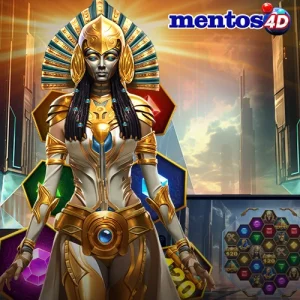The Evolution and Impact of Online Gaming: A Journey into Virtual Realms
admin
- 0
Introduction: In the digital age, online gaming has become an integral part of modern entertainment, captivating millions of players worldwide. From the early days Mentos4d of text-based adventures to the immersive virtual worlds of today, the landscape of online gaming has evolved dramatically, reshaping the way we play and interact with each other. This article explores the evolution, significance, and impact of online gaming on individuals and society as a whole. 
The Dawn of Online Gaming: Online gaming traces its roots back to the 1970s and 1980s with the emergence of rudimentary multiplayer games like MUDs (Multi-User Dungeons) and early online platforms such as CompuServe and ARPANET. These pioneering efforts laid the groundwork for the interconnected virtual realms that would follow.
The Rise of Massively Multiplayer Online Games (MMOs): The 1990s witnessed the rise of MMOs, with titles like Ultima Online and EverQuest captivating players with their expansive worlds and social gameplay experiences. These games fostered virtual communities, where players could collaborate, compete, and forge friendships in shared digital spaces.
The Mainstreaming of Online Gaming: The 2000s saw online gaming enter the mainstream with the advent of broadband internet and the proliferation of consoles and PCs. Games like World of Warcraft, Counter-Strike, and Call of Duty became cultural phenomena, attracting millions of players and paving the way for esports—the competitive aspect of gaming—to flourish.
The Social and Psychological Impact: Online gaming has profound social and psychological implications. For many players, it serves as a means of socializing and connecting with others, transcending geographical boundaries and fostering a sense of belonging. However, excessive gaming can also lead to addiction and isolation, highlighting the need for responsible gaming practices and mental health awareness.
The Technological Advancements: Advancements in technology, such as improved graphics, augmented reality (AR), and virtual reality (VR), have further enhanced the online gaming experience, blurring the lines between the virtual and real worlds. AR games like Pokémon GO and VR experiences like Half-Life: Alyx offer immersive gameplay experiences that were once only the stuff of science fiction.
The Business of Online Gaming: The online gaming industry has become a lucrative market, with revenues surpassing those of the film and music industries combined. From free-to-play models supported by microtransactions to subscription-based services and in-game advertising, developers employ various monetization strategies to sustain their games and communities.
The Future of Online Gaming: Looking ahead, the future of online gaming promises even greater innovation and evolution. Emerging technologies like cloud gaming, blockchain, and artificial intelligence are poised to revolutionize the way we play and experience games. Additionally, as gaming continues to diversify and reach new audiences, inclusivity and